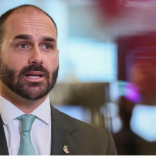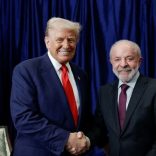Angola: TAAG to start flights to Nairobi in September
Equatorial Guinea: IMF approves financial aid of $282.2M

The International Monetary Fund (IMF) on Thursday approved a $282.8 million financial aid package for Equatorial Guinea until 2022, with a strong component to improve governance and combat corruption.
“The IMF-supported programme aims to maintain macroeconomic and financial stability, improve social protection, foster economic diversification, strengthen governance and fight against corruption,” the note confirming the $282.8 million (about €250 million) programme said.
The IMF board’s approval of the Extended Fund Facility allows for immediate delivery of $40.4 million (€36.3 million), the communiqué said, which also stated that the authorities’ programme is based on the country’s efforts in recent years to reduce macroeconomic imbalances and address the governance and corruption challenges facing Equatorial Guinea.
The agreement aims to support the authorities’ economic programme, which aims to further reduce macroeconomic imbalances and address financial sector vulnerabilities, improve social protection and human capital development, promote economic diversification and boost good governance, increase transparency and combat corruption, all with the overall aim of achieving inclusive and sustainable economic growth.
The communiqué quoted IMF deputy executive director Tao Zhang, saying that a more comprehensive approach is needed to tackle the country’s challenges more effectively, stressing that strict implementation of the commitments now made by the authorities and adherence to a firm timetable is essential.
The country has been affected by a sharp decline in oil prices and a decline in hydrocarbon production, which has led to large macroeconomic imbalances and negative economic growth, Tao Zhang said, noting that the economy has also been affected by persistent problems of governance and corruption.
The authorities’ programme aims to preserve macroeconomic and financial stability, improve governance and combat corruption, support the development of human capital and improve social protection and promote economic diversification.
In the chapter on transparency and combating corruption, the IMF said that increasing transparency, improving governance and combating corruption is critical to improving socio-economic indices, so priority should be given to strengthening the anti-corruption framework, dealing with conflicts of interest and adopting and implementing an asset declaration regime for key political leaders.
In the press release, the IMF argued that it is necessary to foster transparency in the hydrocarbon sector, including the publication of existing oil and gas contracts, audits of GE Petrol and SONAGAS and reports with data on the hydrocarbon sector, as well as information conveyed through the Extractive Industry Transparency Initiative (EITI), which Equatorial Guinea is expected to formally join in February when the institution’s management reviews the application submitted in October.
Furthermore, the deputy executive director of the IMF said that Equatorial Guinea should improve public finance management and strengthen the rule of law in the context of the law against terrorist financing and money laundering.
In the context of the programme, the IMF will conduct a budget safeguard review in early 2020 and warns that strict and full implementation of these measures is essential.












Leave a Reply
Be the First to Comment!
You must be logged in to post a comment.
You must be logged in to post a comment.